Delivering the transit system that 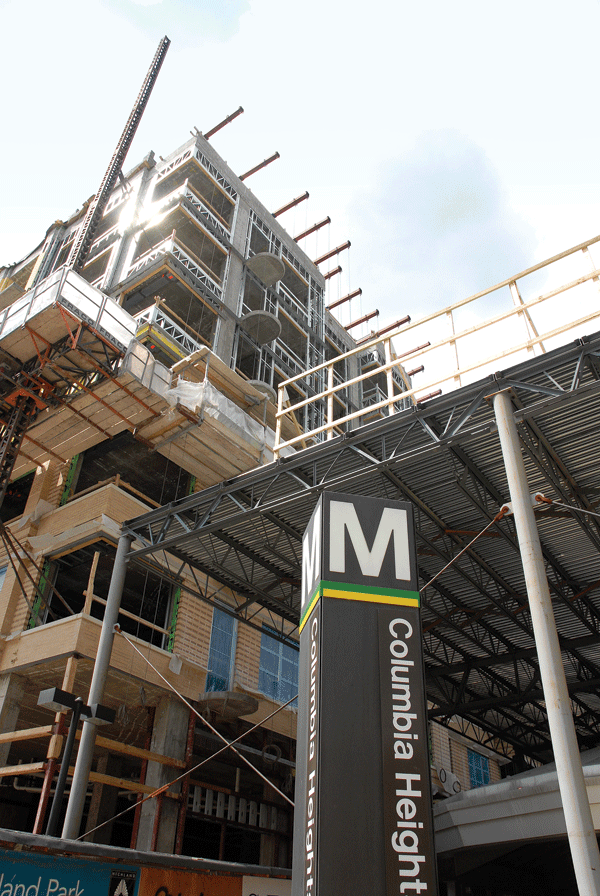 the region needs will require an unequivocal commitment of additional resources from internal and external stakeholders. Simply put, the rehabilitation work being accomplished at the time of the writing of this document will not be nearly enough to keep up with the region’s needs, and without additional resources it will be unlikely that the region can continue to enjoy a transit network that contributes to competitiveness and makes the Washington metropolitan area one of the most desirable places to live and work.
the region needs will require an unequivocal commitment of additional resources from internal and external stakeholders. Simply put, the rehabilitation work being accomplished at the time of the writing of this document will not be nearly enough to keep up with the region’s needs, and without additional resources it will be unlikely that the region can continue to enjoy a transit network that contributes to competitiveness and makes the Washington metropolitan area one of the most desirable places to live and work.
Metro – Doing Business Differently
Metro recognizes that rebuilding the region’s transit system also means rebuilding the region’s transit authority – and will continue to be hard at work on this task in preparation for the implementation of Momentum. In the near term this means revamping nuts and bolts elements of the authority, including but not limited to: identifying ways that Metro can do its job more efficiently while increasing performance; evaluating its contracting and procurement philosophy to emphasize lifecycle contract and asset management; engineering a budgeting process that allows Departments to strive to achieve the goals of Momentum within the context of tight fiscal and financial discipline; and a human capital strategy that must have the right talent in-place and in-queue. In the long term, this means completing the journey to a much more business-like operating and execution philosophy for the organization.
Like many of the nation’s transit 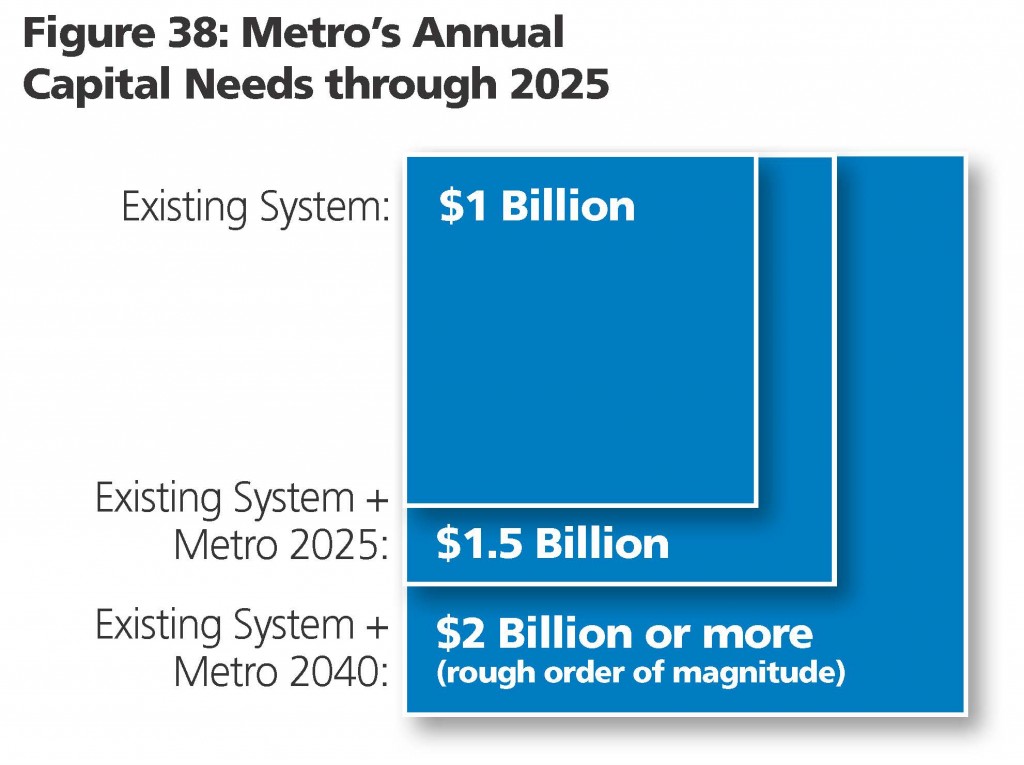 agencies, Metro must rebuild its once-new capital assets as they wear down and deteriorate after decades of use. Metro could feasibly use every penny in its capital budget for years to come just reducing its backlog of maintenance issues. Moreover, Metro also needs to ensure that the system is able to overcome the capacity constraints that come with a regional population expected to swell in both the central core and the suburbs in the years ahead. And on top of this, Metro will need to address calls for entirely new service in many areas of the region. Once Metro is rehabilitated, the system will require a stable level of investment to maintain a state of good repair as it continues to age and deteriorate. Metro estimates that $1 billion (in 2012 dollars) per year is necessary to support and maintain the existing system, even after rehabilitation. Metro 2025 will expand the core and system capacity, as well as ensure that the region’s capital investments are successful. This requires an additional $500 million, on average, in annual capital funding through 2025.
agencies, Metro must rebuild its once-new capital assets as they wear down and deteriorate after decades of use. Metro could feasibly use every penny in its capital budget for years to come just reducing its backlog of maintenance issues. Moreover, Metro also needs to ensure that the system is able to overcome the capacity constraints that come with a regional population expected to swell in both the central core and the suburbs in the years ahead. And on top of this, Metro will need to address calls for entirely new service in many areas of the region. Once Metro is rehabilitated, the system will require a stable level of investment to maintain a state of good repair as it continues to age and deteriorate. Metro estimates that $1 billion (in 2012 dollars) per year is necessary to support and maintain the existing system, even after rehabilitation. Metro 2025 will expand the core and system capacity, as well as ensure that the region’s capital investments are successful. This requires an additional $500 million, on average, in annual capital funding through 2025.
Certainly, increases in the overall size and scope of the system will also have an impact on operating costs, which would grow to some degree when new rail cars, buses, and service are put in place. These operating costs may grow in line with the proportional size of system expansion or at a lower rate, especially if increases in reliability and the increased attractiveness of transit to today’s non-riders has a disproportionate effect on ridership, mode choice, and revenues for modes that have high farebox recovery ratios today and/or where existing demand is already delivering more revenue than operating costs.
Read more…
Business leaders were asked a series of questions about Momentum to gauge the extent that they believe the strategic plan is focused in the right direction. Five different growth options were presented and respondents were asked their level of support for each of them. The options included:
- Running all eight-car trains;
- Installing bus-only lanes as well as other bypass measures;
- Improving stations via widening platforms, more escalators/elevators, pedestrian tunnels;
- Improving communications infrastructure at stations, bus stops, online & fare payment; and
- Relieving track and station congestion at Rosslyn with new infrastructure.
There was clear support for the eight-car trains, with three out of four business leaders choosing this as a priority. Improved communications was also supported by six out of ten surveyed. The rest of the improvements had support from approximately one half of the total respondents. Read more…
Read more…
Metro will seek sufficient and stable funding while leveraging all of its assets wisely.
Metro will put to best use 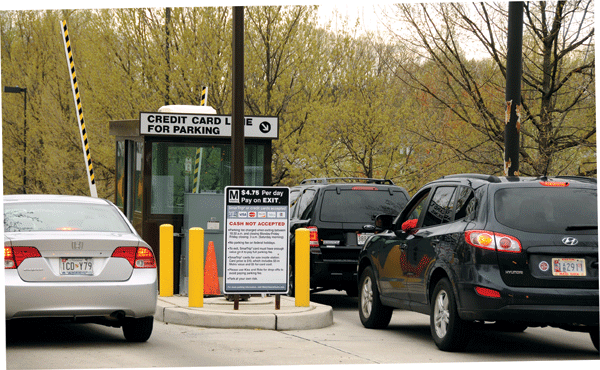 all of its resources—from investing in employees and smarter management of equipment to securing a sound financial roadmap for the future. But this alone will not give the region the transit network it needs for the future. Reliable and sustained funding will be absolutely necessary for Metro to make the critical investments that the region needs. Metro will work with partners at the local, state, and federal levels to ensure that proper funding mechanisms and practices are in place. Metro is a wise steward of its resources. Each year, Metro recycling efforts divert tons of garbage from landfills.
all of its resources—from investing in employees and smarter management of equipment to securing a sound financial roadmap for the future. But this alone will not give the region the transit network it needs for the future. Reliable and sustained funding will be absolutely necessary for Metro to make the critical investments that the region needs. Metro will work with partners at the local, state, and federal levels to ensure that proper funding mechanisms and practices are in place. Metro is a wise steward of its resources. Each year, Metro recycling efforts divert tons of garbage from landfills.
Read more…
What happens if Metro 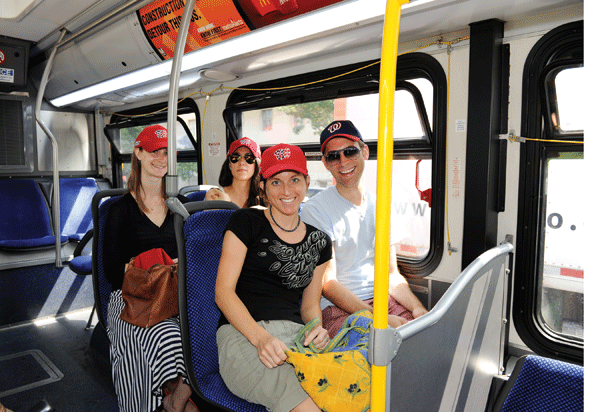 completes MetroForward and ceases there? Simply put, the region cannot afford for Metro to get the system back to where it should have been, but stop short of preparing the system for the growth that has already created overcrowding conditions and service disruptions, let alone prepare for additional growth that has yet to come.
completes MetroForward and ceases there? Simply put, the region cannot afford for Metro to get the system back to where it should have been, but stop short of preparing the system for the growth that has already created overcrowding conditions and service disruptions, let alone prepare for additional growth that has yet to come.
Note that the region is already the most congested area in the country, and Metro is a huge part of what keeps this region moving and working in spite of its transportation gridlock. Stopping short of implementing Metro 2025 and Momentum means that the region’s attractiveness as a place to live and work may be threatened. The region could face the following consequences:
- Metro will degrade quickly with more delays and service disruptions – visible progress will be lost;
- Shoulder-to-shoulder, rush hour conditions experienced today on an increasing number of rail lines and stations will grow system-wide and become worse;
- Crowding similar to Presidential Inauguration Days will likely become the norm;
- Customers will be left with 1970s-era communication and trip planning services;
- Residents would have fewer jobs within an acceptable commuting distance and employers would have access to a much smaller pool of employees; and
- The regional transit system will advance towards antiquity, harming the region’s competitive advantage for talent, jobs and investment dollars.
Read more…
Since 2010, the Board of Directors 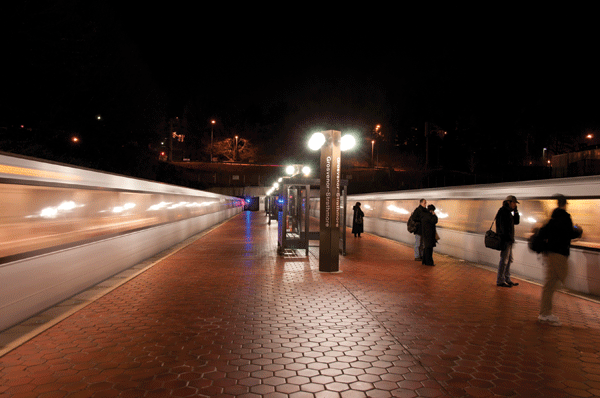 has been laying the foundation to rebuild Metro itself. From hiring a new General Manager to beginning the largest capital program since the inception of Metro, the Board has taken numerous actions to better equip the agency to succeed, including providing a stronger governance foundation.
has been laying the foundation to rebuild Metro itself. From hiring a new General Manager to beginning the largest capital program since the inception of Metro, the Board has taken numerous actions to better equip the agency to succeed, including providing a stronger governance foundation.
Under the leadership of the Board, Metro has made substantial progress on improving system safety, reforming the agency’s governance, and stabilizing its finances
The Board has made strategic investments in infrastructure, equipment and workforce training, and developed policies that have markedly improved safety, as recognized by the NTSB and FTA and documented in the Authority’s publicly-reported Vital Signs score card.
Governance reforms undertaken over the last two years have modernized Board leadership, strengthened the Authority’s governing structure, improved the Board’s partnership with the General Manager/Chief Executive Officer, enhanced internal management, and prioritized public dialogue. The Board also adopted governance reform measures that strengthened its Code of Ethics and provided its first-ever bylaws, which detail the Board’s focus on policy, financial direction, oversight and Metro’s relationship with its customers and jurisdictional partners.
Read more…
Metro will provide reliable, 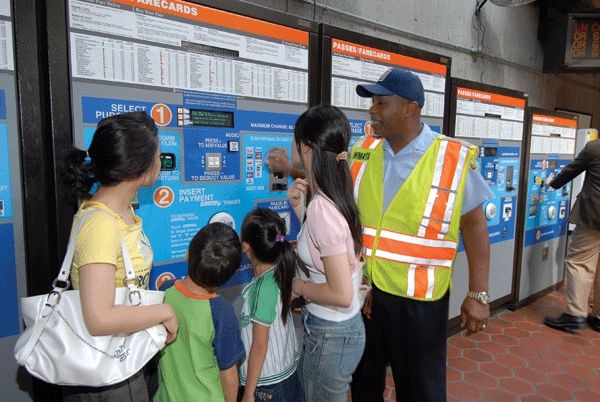 accessible, clean and customer-focused transit service.
accessible, clean and customer-focused transit service.
Metro strives to be the region’s preferred ride. That means that Metro will provide on-time service that gets customers where they want to go, when they want to get there. From the moment customers arrive in a station or board a bus or Access vehicle, Metro will strive to make travel safe, reliable, clean, comfortable and affordable. Trip information will be easy to hear and simple to obtain with support from the latest user-friendly technology and responsive staff.
Over the last two years, Metro has improved on-time performance and customer service so today:
- Metrorail continues to make improvements to exceed ninety percent on-time reliability, and MetroBus continues to improve service despite increasing traffic congestion; and
- Over eighty percent of both bus and rail customers surveyed are ‘highly satisfied’ with service.
Read more…
Metro will create a safer and more secure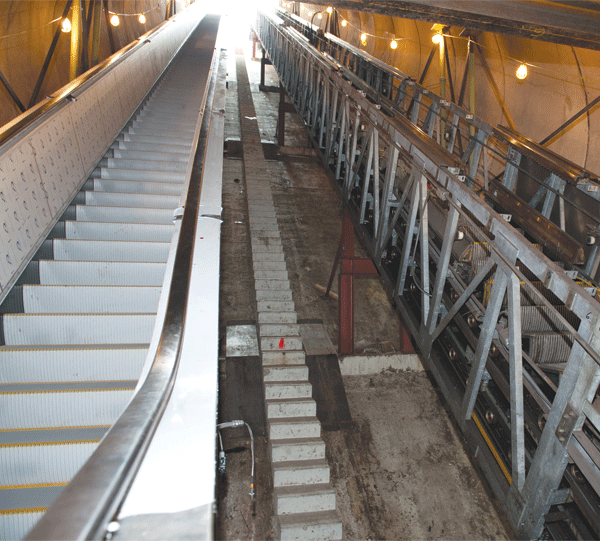 transit experience for customers and employees.
transit experience for customers and employees.
Metro customers and employees deserve and expect a safe environment – on the job, in the buses, on the trains and in the stations and shelters. Our commitment: A Metro ride is a safe ride. In 2011, eighty employees were recognized as Champions of Safety for their efforts in safeguarding Metro employees, equipment and customers. More than eighty-five percent of both Metrobus and Metrorail riders are highly satisfied with security. Read more…
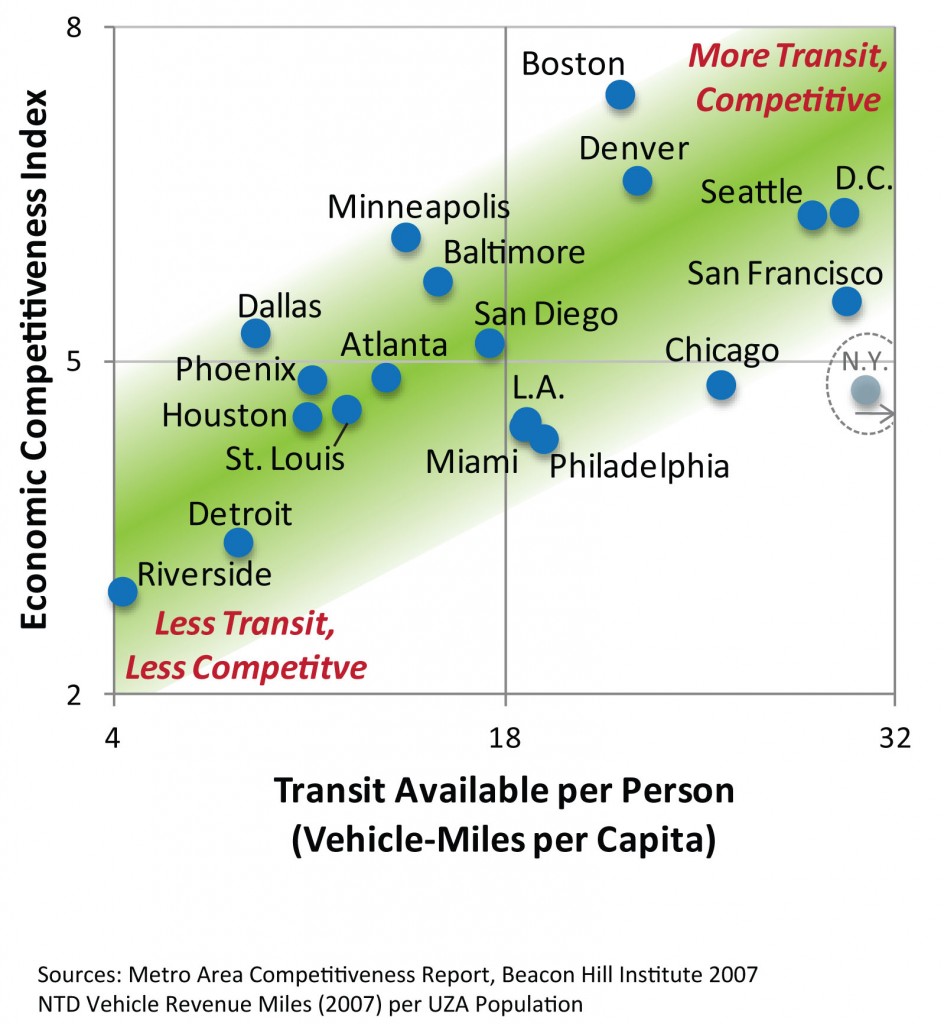 In September 2012, MWCOG released Economy Forward, a call to action for a more competitive metropolitan Washington. This report called for strong centers with housing, jobs, and access to transit as a means to enhance the region’s competitiveness. Through monthly meetings with public and private nonprofit and academic leaders, it concluded that the transportation network is one of the five critical challenges in recruiting new business to the Washington region. It also concluded that “without adequate funding, Metro and the region’s highways will become even more congested, which will hurt the region’s productivity and economic growth potential.”
In September 2012, MWCOG released Economy Forward, a call to action for a more competitive metropolitan Washington. This report called for strong centers with housing, jobs, and access to transit as a means to enhance the region’s competitiveness. Through monthly meetings with public and private nonprofit and academic leaders, it concluded that the transportation network is one of the five critical challenges in recruiting new business to the Washington region. It also concluded that “without adequate funding, Metro and the region’s highways will become even more congested, which will hurt the region’s productivity and economic growth potential.”
Read more…
Momentum requires Metro to reclaim its leadership role and to ensure that the region’s transit network meets the region’s needs. Metro’s Compact charges it with putting forth plans and mobility projects that enhance regional mobility and to be the champion for the regional rider. This means moving beyond the role of “convener” and mere “coordinator” and embracing the roles of “leader”, “collaborator”, and “co—author”.
Living up to this charge means leveraging the relationships with sister agencies Metro has already built by collaborating with partners from concept to execution. Metro will bring its partners in early to co-author mobility innovations, engage in joint problem-solving, and collaborate on bringing these projects online and into operation. As the lead transit planner, Metro will literally draw the region’s transit map and advocate for its implementation.
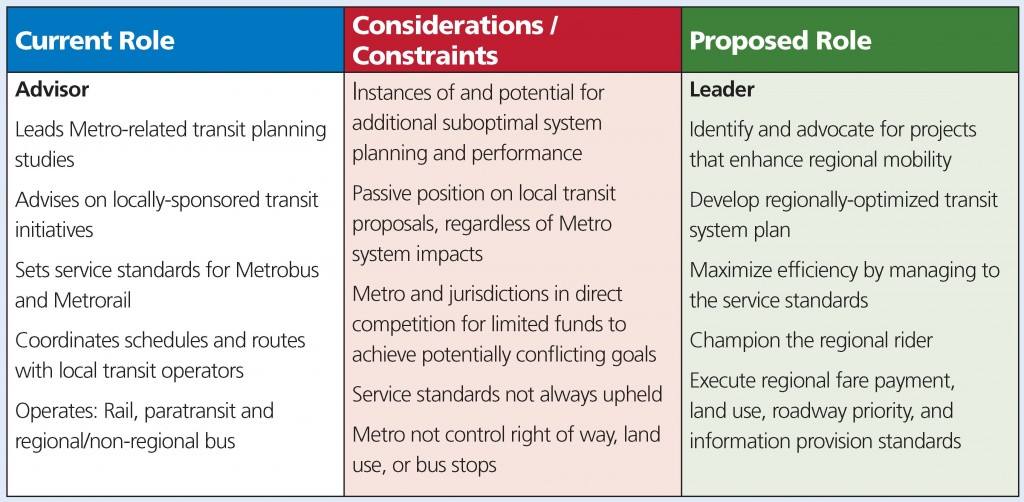
 the region needs will require an unequivocal commitment of additional resources from internal and external stakeholders. Simply put, the rehabilitation work being accomplished at the time of the writing of this document will not be nearly enough to keep up with the region’s needs, and without additional resources it will be unlikely that the region can continue to enjoy a transit network that contributes to competitiveness and makes the Washington metropolitan area one of the most desirable places to live and work.
the region needs will require an unequivocal commitment of additional resources from internal and external stakeholders. Simply put, the rehabilitation work being accomplished at the time of the writing of this document will not be nearly enough to keep up with the region’s needs, and without additional resources it will be unlikely that the region can continue to enjoy a transit network that contributes to competitiveness and makes the Washington metropolitan area one of the most desirable places to live and work.










Recent Comments